Find Help
More Items From Ergsy search
-
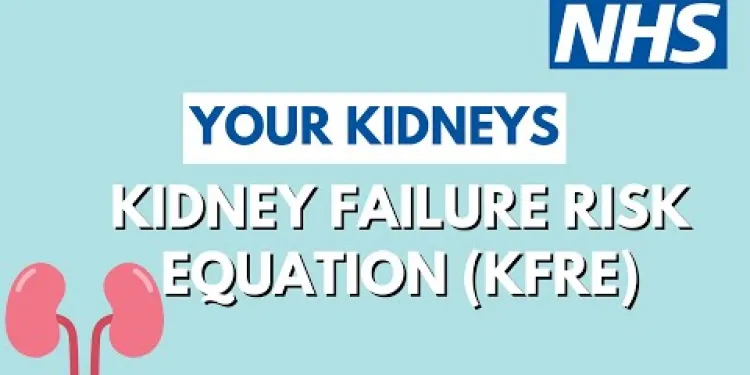
What is my risk of kidney failure with CKD (chronic kidney disease) | UHL NHS Trust
Relevance: 100%
-

What causes chronic kidney disease?
Relevance: 86%
-

Chronic kidney disease: What are the treatments?
Relevance: 84%
-

NHSGGC - Diet and Chronic Kidney Disease (CKD)
Relevance: 78%
-

What should I eat to help with chronic kidney disease?
Relevance: 77%
-

Living with early stage kidney disease
Relevance: 71%
-

Having a kidney transplant
Relevance: 64%
-

Does Ozempic have an impact on kidney function?
Relevance: 62%
-

Patient Stories - Having a kidney transplant
Relevance: 60%
-

Matthew's Story: Kidney Transplant - Part 1
Relevance: 60%
-

What are kidney stones?
Relevance: 59%
-

Kidney transplant waiting stories – DJ Ace and Lauren | NHS Organ Donation
Relevance: 51%
-

What causes heart failure?
Relevance: 48%
-

Can heart failure affect other organs?
Relevance: 44%
-

Home dialysis help for kidney patients
Relevance: 42%
-
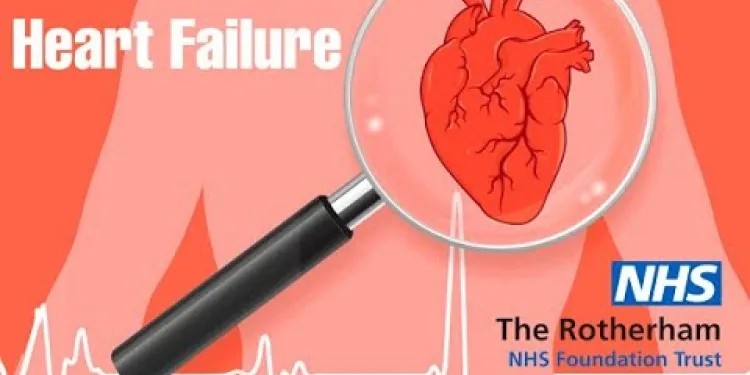
Heart Failure : Symptoms of heart failure
Relevance: 39%
-
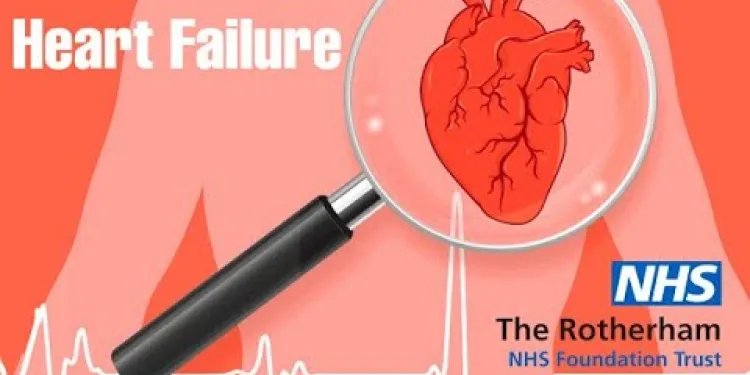
Heart Failure : What is heart failure?
Relevance: 38%
-

Can high blood pressure lead to other health problems?
Relevance: 36%
-

What are the complications of sickle cell disease?
Relevance: 36%
-
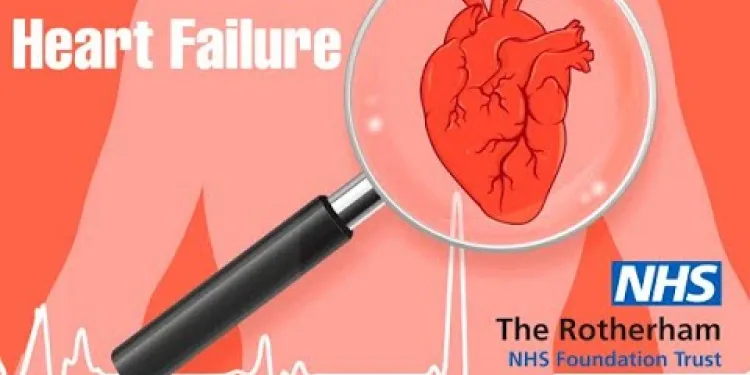
Heart Failure : Heart failure that cannot pump
Relevance: 35%
-

What medications are commonly prescribed for heart failure?
Relevance: 34%
-

Can heart failure be prevented?
Relevance: 33%
-

Heart failure introduction
Relevance: 33%
-

Is there a link between seed oils and chronic diseases?
Relevance: 32%
-

Are there different types of heart failure?
Relevance: 32%
-

What is the role of diet in managing heart failure?
Relevance: 31%
-

Heart Failure : The normal heart
Relevance: 31%
-
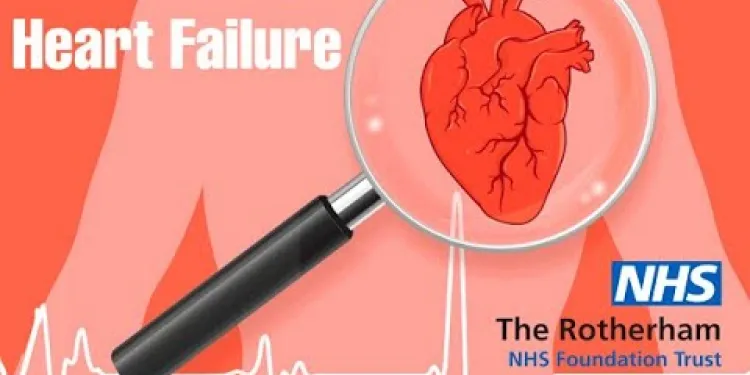
Heart Failure : When the heart becomes stiff?
Relevance: 31%
-

What is the prognosis for someone with heart failure?
Relevance: 31%
-

What are the risks of having high blood pressure?
Relevance: 31%
-
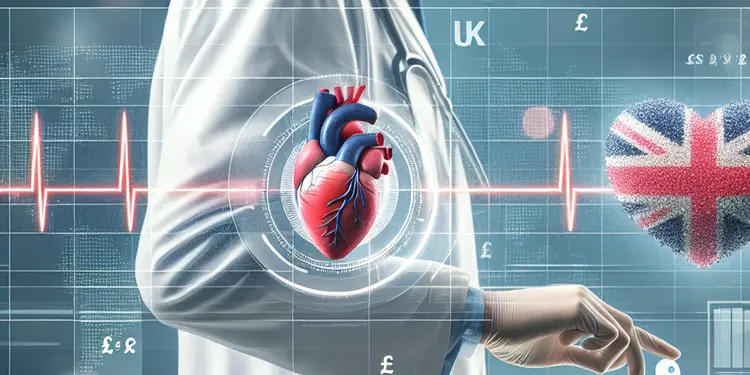
How is heart failure diagnosed?
Relevance: 31%
-
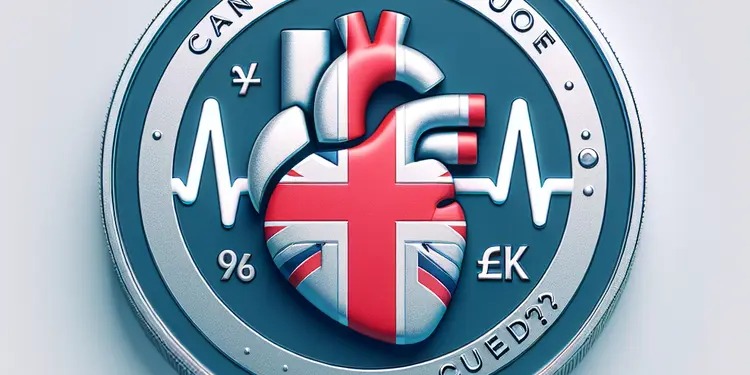
Can heart failure be cured?
Relevance: 30%
-

What complications are associated with Type 2 Diabetes?
Relevance: 29%
-

How does too much salt affect my health?
Relevance: 28%
-

Why is reducing aldosterone levels important?
Relevance: 27%
-
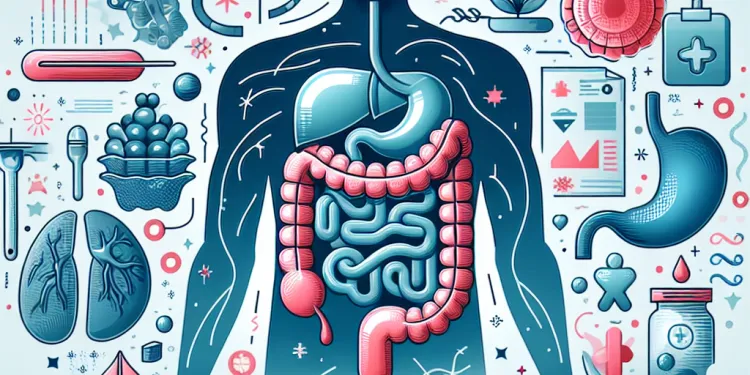
Are there any complications associated with Crohn's disease?
Relevance: 26%
-

Why might someone need a blood transfusion?
Relevance: 26%
-
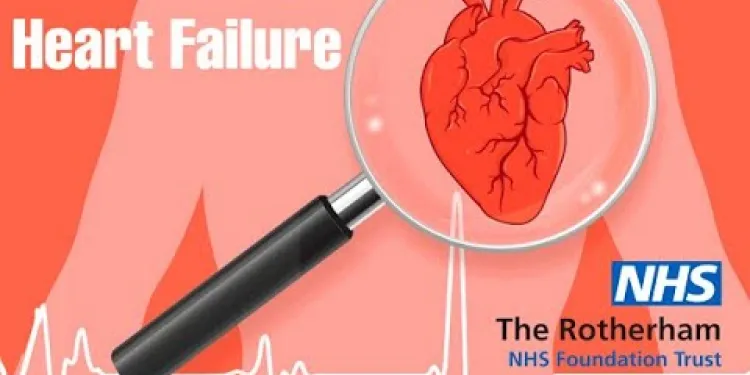
Heart Failure : Treatment and monitoring of fluid retention
Relevance: 25%
-

Are there any complications associated with untreated BPH?
Relevance: 25%
-

Is Baxdrostat used in treating heart failure?
Relevance: 24%
What is My Risk of Kidney Failure with CKD (Chronic Kidney Disease)? | UHL NHS Trust
Understanding Chronic Kidney Disease
Chronic Kidney Disease (CKD) is a long-term condition where the kidneys do not work as well as they should. Over time, CKD can progress to more severe stages, potentially leading to kidney failure. It is important to understand how CKD is managed to reduce the risk of progression and complications.Stages of Chronic Kidney Disease
CKD is classified into five stages based on the glomerular filtration rate (GFR), which measures how well your kidneys are filtering blood: - Stage 1: Normal kidney function but with some signs of mild damage - Stage 2: Mildly reduced kidney function - Stage 3: Moderately reduced kidney function - Stage 4: Severely reduced kidney function - Stage 5: Kidney failure or end-stage renal disease (ESRD)Risk Factors for Progression to Kidney Failure
Several factors can increase the risk of CKD progressing to kidney failure, including: - **Diabetes:** High blood sugar levels can damage the kidneys over time. - **High Blood Pressure:** Uncontrolled hypertension can strain and damage the kidneys. - **Family History:** A family history of kidney disease can increase your risk. - **Age:** CKD risk increases with age, particularly after the age of 60. - **Ethnicity:** Certain ethnic groups, including people of South Asian, African, or Caribbean descent, have higher risks of CKD.Managing CKD to Reduce Risk
You can take several steps to manage CKD and reduce the risk of kidney failure: - **Regular Monitoring:** Attend regular check-ups to monitor kidney function and manage CKD stages effectively. - **Healthy Diet:** Adopting a low-salt, low-fat diet can help manage underlying conditions such as diabetes and high blood pressure. - **Medication:** Take prescribed medications as directed to control blood pressure and blood sugar levels. - **Lifestyle Changes:** Engage in regular physical activity, avoid smoking, and limit alcohol consumption.Support from UHL NHS Trust
The University Hospitals of Leicester NHS Trust (UHL) provides various services to support individuals diagnosed with CKD. Clinics offer comprehensive care involving nephrologists, dietitians, and other healthcare professionals to help manage and slow the progression of CKD.Conclusion
Understanding your risk of kidney failure with CKD is crucial for effective management and intervention. By addressing risk factors, adhering to medical advice, and making healthy lifestyle choices, you can significantly reduce the progression of CKD to kidney failure. The UHL NHS Trust is committed to providing the necessary support and resources for patients in the UK.What is My Risk of Kidney Failure with CKD (Chronic Kidney Disease)? | UHL NHS Trust
Understanding Chronic Kidney Disease
Chronic Kidney Disease (called CKD for short) is a long-lasting problem where the kidneys do not work as well as they should. CKD can get worse over time and may lead to kidney failure. It is important to know how to take care of CKD to stop it from getting worse.Stages of Chronic Kidney Disease
CKD has five stages which tell us how well the kidneys are working: - Stage 1: Kidneys work normally, but there is some mild damage. - Stage 2: Kidneys work a little less than normal. - Stage 3: Kidneys do not work as well as they should. - Stage 4: Kidneys have a lot of trouble working. - Stage 5: Kidneys are not working (this might be called kidney failure).Risk Factors for Progression to Kidney Failure
Some things can make CKD worse and maybe lead to kidney failure, like: - **Diabetes:** If you have high sugar in your blood, it can hurt the kidneys. - **High Blood Pressure:** If it is too high, it can damage the kidneys. - **Family History:** If people in your family have kidney problems, you might too. - **Age:** Getting older can increase your risk, especially after 60 years old. - **Ethnicity:** Some groups, like South Asian, African, or Caribbean people, have a higher risk.Managing CKD to Reduce Risk
You can do things to take care of CKD and help your kidneys, like: - **Regular Monitoring:** Go to the doctor often to check your kidneys. - **Healthy Diet:** Eat foods with less salt and fat to help control diabetes and blood pressure. - **Medication:** Take your medicine to keep blood pressure and sugar in check. - **Lifestyle Changes:** Exercise often, do not smoke, and drink less alcohol.Support from UHL NHS Trust
The University Hospitals of Leicester NHS Trust (UHL) helps people with CKD. They have clinics with kidney doctors and diet experts who give advice on how to manage CKD.Conclusion
It is important to know your risk for kidney failure if you have CKD. By taking care of yourself and following your doctor's advice, you can stop CKD from getting worse. UHL NHS Trust is here to provide help and resources for people in the UK.Frequently Asked Questions
What is the risk of kidney failure with chronic kidney disease (CKD)?
The risk of kidney failure with chronic kidney disease varies depending on the stage of CKD, underlying causes, and adherence to treatment and lifestyle changes.
What stages of CKD are there and how do they relate to kidney failure risk?
CKD has five stages, ranging from mild (Stage 1) to kidney failure (Stage 5). The risk of kidney failure increases as the stages progress, particularly in Stages 4 and 5.
Can lifestyle changes impact my risk of kidney failure with CKD?
Yes, lifestyle changes such as maintaining a healthy diet, regular exercise, and managing blood pressure and diabetes can significantly reduce the risk of kidney failure.
How can medication help in reducing the risk of kidney failure with CKD?
Medications can help control conditions that cause CKD, such as high blood pressure and diabetes, thereby reducing the risk of kidney failure.
What are the common symptoms of CKD that increase the risk of kidney failure?
Symptoms such as fatigue, swelling in the legs and ankles, shortness of breath, and high blood pressure can indicate worsening kidney function, potentially leading to an increased risk of kidney failure.
Is regular monitoring important for managing CKD and preventing kidney failure?
Regular monitoring of kidney function and adherence to medical advice are crucial for managing CKD and reducing the risk of kidney failure.
What role does blood pressure management play in minimizing the risk of kidney failure with CKD?
Controlling blood pressure is vital in slowing CKD progression and reducing the risk of kidney failure.
Are there specific dietary recommendations to lower the risk of kidney failure with CKD?
A diet low in salt, protein, and phosphorus and rich in fruits and vegetables can help manage CKD and lower the risk of kidney failure.
Does smoking affect my risk of kidney failure with CKD?
Smoking can accelerate the progression of CKD and increase the risk of kidney failure, so quitting smoking is highly recommended.
Can early detection of CKD reduce the risk of kidney failure?
Early detection and treatment of CKD can help slow its progression and significantly reduce the risk of kidney failure.
What are the treatment options if CKD progresses to kidney failure?
Treatment options for kidney failure include dialysis or a kidney transplant, depending on the patient’s condition and overall health.
How does diabetes management affect the risk of kidney failure with CKD?
Effective management of diabetes is crucial in preventing the progression of CKD and reducing the risk of kidney failure.
Is CKD more common in certain populations or age groups?
CKD is more common in older adults and people with conditions like diabetes, hypertension, and cardiovascular disease.
Can genetic factors influence the risk of kidney failure with CKD?
Genetic factors can play a role in the development and progression of CKD, which may influence the risk of kidney failure.
What support is available for individuals with CKD to manage their condition and reduce the risk of kidney failure?
In the UK, individuals with CKD can access support through healthcare professionals, kidney patient organizations, and educational resources provided by the NHS.
How likely is it to have kidney failure if you have long-term kidney problems?
Kidney problems can get worse over time. How bad they get depends on a few things. It can depend on how bad the kidney problem is right now. It also depends on what caused the kidney problem. Taking medicine and making healthy choices can help keep your kidneys working better for longer.
What are the stages of CKD and how do they show the risk of kidney problems?
CKD has five stages. It starts at Stage 1, which is mild, and goes to Stage 5, which is kidney failure. As the stages go up, the risk of kidney problems gets higher, especially in Stages 4 and 5.
Can changing how I live help my kidneys if I have CKD?
If you have kidney problems, also known as CKD, there are things you can do to help:
- Eat healthy food like fruits and vegetables.
- Drink lots of water.
- Exercise regularly like walking or playing sports.
- Stop smoking if you smoke.
- Avoid drinking too much alcohol.
These actions can help keep your kidneys healthy. You can also:
- Talk to a doctor about your kidneys.
- Use tools like reminders for drinking water.
- Ask for help if you find it hard to make changes.
Yes, making changes in how you live can help keep your kidneys healthy. Eat healthy foods, exercise often, and control your blood pressure and diabetes. These can really help stop kidney problems.
How can medicine help with kidney problems?
Medicine can help people with kidney problems. It can make the kidneys work better.
Here are some ways medicine helps:
- Makes blood pressure better.
- Stops kidney damage from getting worse.
- Makes people feel less sick.
If you take medicine, it’s important to take it just like the doctor says.
If you have questions, ask your doctor or nurse. They can help you understand.
You can also use pictures or videos to help you learn.
Medicines can help with problems like high blood pressure and diabetes. This can stop kidney problems from getting worse.
What are the signs that kidney problems are getting worse?
Here is where you list the signs. These signs mean kidneys might not be working well:
- Feeling very tired
- Not hungry
- Feeling sick
- Swollen feet or ankles
- Having trouble thinking clearly
If you or someone you know has these signs, it is good to tell a doctor.
When your kidneys are not working well, you might feel very tired. Your legs and ankles might get puffy and swollen. You could find it hard to breathe. You might have high blood pressure too. These are signs that your kidneys are not doing a good job, and it can be serious.
If you notice these signs, you should tell a grown-up or a doctor. They can help you understand what is happening and what you can do next.
Using things like pictures, charts, or getting help from others can make it easier to understand these signs and what to do about them.
Is it important to check kidneys often to take care of CKD and stop kidney problems?
Yes, it is important to check your kidneys often.
This helps to take care of CKD and stop kidney problems.
Here are some helpful tips:
- Visit your doctor regularly.
- Get blood and urine tests to see how your kidneys are doing.
- Eat healthy foods and drink lots of water.
- Ask friends or family for support if you need help.
Using pictures or apps can also make it easier to understand.
It is very important to keep checking how your kidneys are working. You should also listen to your doctor's advice. This helps you take care of your kidneys and stops them from getting worse.
How can controlling blood pressure help your kidneys stay healthy if you have CKD?
High blood pressure can hurt your kidneys. If you have kidney problems, controlling your blood pressure is very important. It can help your kidneys work better and last longer.
Here are some ways to keep your blood pressure under control:
- Eat healthy foods like fruits and vegetables.
- Exercise regularly, like walking every day.
- Take your medicines if your doctor gives you any.
- Avoid too much salt in your food.
- Watch your weight and keep it healthy.
Using simple tools can help, like:
- A blood pressure monitor to check your blood pressure at home.
- Apps or reminders to keep track of your medicines.
Talk to your doctor for more help and advice. They can support you in keeping your blood pressure normal to protect your kidneys.
It is very important to keep your blood pressure under control. This helps stop kidney disease from getting worse and lowers the chance of your kidneys failing.
What foods should I eat to help my kidneys stay healthy if I have CKD?
If you have CKD (which means your kidneys are not working well), eating the right foods can help. Here are some tips:
- Eat less salt. You can try spices and herbs instead.
- Eat more fruits and vegetables. They are good for your body.
- Drink plenty of water. It helps your kidneys clean your blood.
- Eat healthy proteins like chicken or fish. Try not to eat too much red meat.
- Avoid sugary and fatty foods.
If you need help with what to eat, you can talk to a doctor or a dietitian. They can help you make a food plan.
Eating less salt, protein, and phosphorus is good for your kidneys if you have CKD. Eating more fruits and vegetables helps keep your kidneys healthy.
Can smoking hurt my kidneys if I have CKD?
CKD means your kidneys are not working well.
Smoking can make your kidneys worse.
If you smoke and have CKD, you might get kidney failure faster.
It is a good idea to stop smoking.
Ask a doctor or nurse to help you quit smoking.
They can give you tips and tools to make it easier.
Smoking can make kidney problems worse and can hurt the kidneys. It is important to stop smoking to help keep your kidneys healthy.
Can finding kidney problems early help stop kidney failure?
Finding and treating kidney disease early can help keep it from getting worse. This can help stop kidney failure.
What can be done if kidney disease gets worse?
If someone's kidneys stop working, doctors can help in two main ways. They can use a machine to clean the blood, called dialysis. Or they can give the person a new kidney, called a kidney transplant. The doctor will choose based on how healthy the person is.
How does taking care of diabetes help stop kidney problems with CKD?
Diabetes is when your body has trouble with sugar.
CKD means your kidneys are not working well.
If you take good care of your diabetes, you can help your kidneys stay healthy.
Here are some ways to help:
- Check your blood sugar often.
- Eat healthy food like fruits and vegetables.
- See your doctor regularly.
- Take your medicine the way your doctor says.
You can use tools like a blood sugar meter to help you.
Ask your doctor for more ways to manage diabetes and protect your kidneys.
It is important to take care of diabetes to stop CKD from getting worse. This also helps stop kidney failure.
Who gets CKD more often?
Some people have a higher chance of getting CKD. It can be more common in:
- Older adults
- Certain ethnic groups
- People with a family history of kidney problems
- People with health issues like diabetes or high blood pressure
It's important to visit the doctor for regular check-ups. This can help find CKD early.
Using tools like pictures or videos can help understand this information better.
CKD is a kidney problem that happens more in older people. It is also more common in people with diabetes, high blood pressure, or heart problems.
Can genes make kidney problems worse with CKD?
Genes can affect kidney health. This can sometimes make kidney problems worse, and may lead to kidney failure.
How can people with CKD get help to stay healthy and keep their kidneys working?
In the UK, people with kidney problems can get help from doctors, kidney support groups, and learning tools from the NHS.
Useful Links
This website offers general information and is not a substitute for professional advice.
Always seek guidance from qualified professionals.
If you have any medical concerns or need urgent help, contact a healthcare professional or emergency services immediately.
Some of this content was generated with AI assistance. We’ve done our best to keep it accurate, helpful, and human-friendly.
- Ergsy carfully checks the information in the videos we provide here.
- Videos shown by Youtube after a video has completed, have NOT been reviewed by ERGSY.
- To view, click the arrow in centre of video.
- Most of the videos you find here will have subtitles and/or closed captions available.
- You may need to turn these on, and choose your preferred language.
- Go to the video you'd like to watch.
- If closed captions (CC) are available, settings will be visible on the bottom right of the video player.
- To turn on Captions, click settings .
- To turn off Captions, click settings again.
More Items From Ergsy search
-

What is my risk of kidney failure with CKD (chronic kidney disease) | UHL NHS Trust
Relevance: 100%
-

What causes chronic kidney disease?
Relevance: 86%
-

Chronic kidney disease: What are the treatments?
Relevance: 84%
-

NHSGGC - Diet and Chronic Kidney Disease (CKD)
Relevance: 78%
-

What should I eat to help with chronic kidney disease?
Relevance: 77%
-

Living with early stage kidney disease
Relevance: 71%
-

Having a kidney transplant
Relevance: 64%
-

Does Ozempic have an impact on kidney function?
Relevance: 62%
-

Patient Stories - Having a kidney transplant
Relevance: 60%
-

Matthew's Story: Kidney Transplant - Part 1
Relevance: 60%
-

What are kidney stones?
Relevance: 59%
-

Kidney transplant waiting stories – DJ Ace and Lauren | NHS Organ Donation
Relevance: 51%
-

What causes heart failure?
Relevance: 48%
-

Can heart failure affect other organs?
Relevance: 44%
-

Home dialysis help for kidney patients
Relevance: 42%
-

Heart Failure : Symptoms of heart failure
Relevance: 39%
-

Heart Failure : What is heart failure?
Relevance: 38%
-

Can high blood pressure lead to other health problems?
Relevance: 36%
-

What are the complications of sickle cell disease?
Relevance: 36%
-

Heart Failure : Heart failure that cannot pump
Relevance: 35%
-

What medications are commonly prescribed for heart failure?
Relevance: 34%
-

Can heart failure be prevented?
Relevance: 33%
-

Heart failure introduction
Relevance: 33%
-

Is there a link between seed oils and chronic diseases?
Relevance: 32%
-

Are there different types of heart failure?
Relevance: 32%
-

What is the role of diet in managing heart failure?
Relevance: 31%
-

Heart Failure : The normal heart
Relevance: 31%
-

Heart Failure : When the heart becomes stiff?
Relevance: 31%
-

What is the prognosis for someone with heart failure?
Relevance: 31%
-

What are the risks of having high blood pressure?
Relevance: 31%
-

How is heart failure diagnosed?
Relevance: 31%
-

Can heart failure be cured?
Relevance: 30%
-

What complications are associated with Type 2 Diabetes?
Relevance: 29%
-

How does too much salt affect my health?
Relevance: 28%
-

Why is reducing aldosterone levels important?
Relevance: 27%
-

Are there any complications associated with Crohn's disease?
Relevance: 26%
-

Why might someone need a blood transfusion?
Relevance: 26%
-

Heart Failure : Treatment and monitoring of fluid retention
Relevance: 25%
-

Are there any complications associated with untreated BPH?
Relevance: 25%
-

Is Baxdrostat used in treating heart failure?
Relevance: 24%


